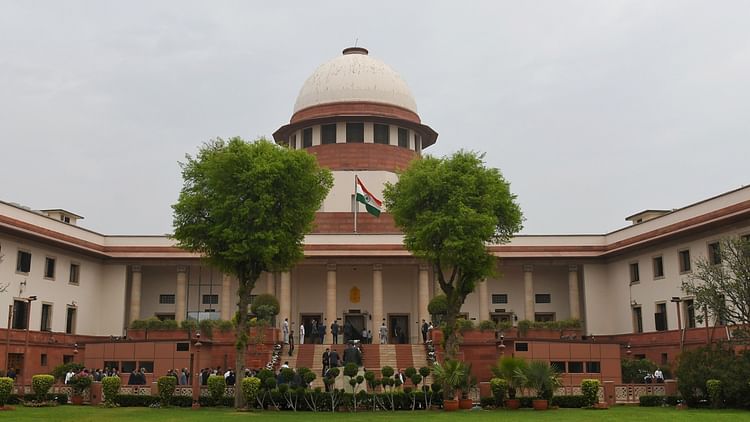In a landmark ruling that resonates with the core principles of justice and fairness, the Supreme Court of India has redefined the landscape of bail sureties. The verdict, delivered with a profound understanding of the “hard realities of life,” seeks to ensure that the fundamental right to liberty is not held hostage by the often insurmountable challenge of securing multiple sureties.
The Case of Girish Gandhi: A Catalyst for Change
The catalyst for this transformative ruling was the case of Girish Gandhi, who found himself ensnared in a web of legal proceedings. Despite being granted bail in 13 separate cases, Gandhi faced the daunting prospect of languishing in jail due to his inability to find 22 individuals willing to stand as sureties for the remaining 11 First Information Reports (FIRs).
This predicament, while unique in its scale, is emblematic of a systemic issue that has long plagued the Indian criminal justice system. The requirement for multiple sureties, often financially burdensome and logistically challenging, has disproportionately affected individuals from marginalized communities, perpetuating a cycle of injustice.
A Compassionate Intervention: Supreme Court’s Empathetic Stance
Recognizing the inherent injustice of denying liberty based on a lack of personal connections, a bench comprising Justices B.R. Gavai and K.V. Viswanathan stepped in. In a judgment that echoes the principles of compassion and empathy, the court ruled that the same two sureties could stand for all 13 cases, thus paving the way for Gandhi’s release.
Justice Viswanathan, who authored the judgment, articulated the court’s rationale with clarity and conviction. He underscored that Gandhi’s inability to secure a multitude of sureties should not result in his continued incarceration, particularly considering his familial responsibilities. The court’s stance reflects a nuanced understanding of the socioeconomic realities that often hinder individuals from accessing justice.
The ‘Hard Realities of Life’: Navigating the Maze of Sureties
The Supreme Court’s acknowledgment of the “hard realities of life” is a poignant reminder of the challenges faced by those navigating the complexities of the legal system. The court recognized that finding individuals willing to stand as sureties, especially in criminal cases, is often fraught with difficulties.
Concerns about reputation, potential legal repercussions, and financial obligations often deter people from stepping forward, leaving the accused in a precarious position. This is particularly true for individuals from marginalized communities who may lack the social capital or financial resources to secure multiple sureties.
A Balanced Approach: Upholding Fundamental Rights and Ensuring Accountability
The Supreme Court’s ruling is not a carte blanche for the accused to evade accountability. Rather, it strikes a delicate balance between safeguarding the fundamental right to liberty under Article 21 of the Constitution and ensuring the accused’s presence in court proceedings.
The court emphasized the need for “reasonable and proportionate” bail conditions that consider the specific circumstances of each case. This approach recognizes that imposing excessive and onerous surety requirements can effectively nullify the purpose of granting bail, leading to prolonged pretrial detention and undermining the presumption of innocence.
Implications for the Criminal Justice System: A Paradigm Shift
This landmark ruling is poised to usher in a paradigm shift in the Indian criminal justice system. It underscores the importance of judicial discretion in setting bail conditions, particularly in cases involving multiple charges. The ruling also highlights the urgent need for comprehensive legal aid and support systems to assist individuals in navigating the complexities of the bail process.
Furthermore, the judgment serves as a clarion call for a broader re-evaluation of the bail system in India. It prompts a critical examination of the socioeconomic factors that often create barriers to justice, particularly for those from marginalized communities.
The ruling also reinforces the importance of pretrial services and community-based alternatives to incarceration, which can provide support and supervision to individuals released on bail, reducing the reliance on sureties.
Beyond Bail: A Broader Conversation on Justice and Equity
The Supreme Court’s decision to ease bail surety requirements is not merely a legal victory; it is a testament to the judiciary’s commitment to upholding the principles of fairness, compassion, and human dignity. It underscores the importance of a justice system that is not only efficient and accountable but also equitable and accessible to all.
This ruling paves the way for a broader conversation on the role of the judiciary in addressing systemic inequalities and ensuring that justice is not a privilege but a right. It highlights the need for continuous reform and innovation in the criminal justice system, guided by the principles enshrined in the Constitution.
Conclusion: A Beacon of Hope for a More Just Society
The Supreme Court’s verdict in the Girish Gandhi case is a beacon of hope for a more just and equitable society. It signals a departure from a rigid and often punitive approach to bail, recognizing the human cost of excessive surety requirements.
By prioritizing individual liberty and acknowledging the socioeconomic realities that shape access to justice, the court has taken a significant step towards ensuring that the promise of equality before the law is not an empty rhetoric but a lived reality for all citizens.
This ruling, while centered on the specific issue of bail sureties, has broader implications for the future of the Indian legal system. It reinforces the judiciary’s role as a guardian of fundamental rights, a protector of the vulnerable, and a catalyst for social change.
As India continues its journey towards a more just and inclusive society, this landmark judgment will undoubtedly serve as a guiding light, illuminating the path towards a legal system that truly embodies the principles of equality, fairness, and compassion.
Soumya Smruti Sahoo is a seasoned journalist with extensive experience in both international and Indian news writing. With a sharp analytical mind and a dedication to uncovering the truth, Soumya has built a reputation for delivering in-depth, well-researched articles that provide readers with a clear understanding of complex global and domestic issues. Her work reflects a deep commitment to journalistic integrity, making her a trusted source for accurate and insightful news coverage.



